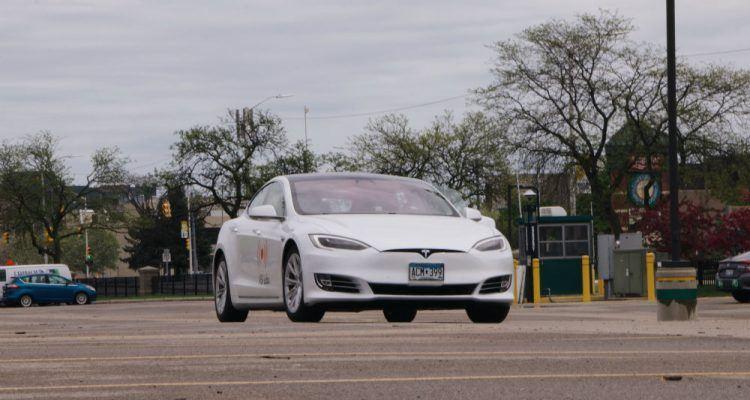
После успешной майской конференции в Детройте AutoSens, глобальный саммит по автоматизированному вождению, в сентябре возвращается в Брюссель, Бельгия. Организаторы объявили о повестке дня мероприятия, которое включает более 60 различных сессий, предназначенных для облегчения конструктивного диалога по теме автономных автомобилей.
«Задача автомобильной промышленности заключается в разработке компьютеров и роботов, которые могут выполнять задачи лучше, чем люди, а также наносят минимальный ущерб системе, которая будет включать в себя транспортные средства, управляемые людьми на многие десятилетия вперед», – объяснил основатель AutoSens Роберт Стед. «Это непростая задача».
Сотрудничество и общение
AutoSens охватывает почти все аспекты автономного вождения, от цепочки поставок, инфраструктуры и инженерных задач, до юридических, финансовых и этических соображений. Участникам, докладчикам и спонсорам рекомендуется использовать опыт друг друга во время мероприятия, которое ставит перед собой самые большие проблемы, с которыми сталкиваются автономные автомобили. Сотрудничество и креативность являются центральными темами AutoSens, благодаря которым профессионалам в этой области предлагается делиться идеями и разрабатывать решения для устранения препятствий, стоящих перед автономным вождением.
«Это яростно конкурентный рынок, но все компании могут воспользоваться форумом с бесплатным обменом идеями», – сказал нам Стейд. «Конечно, люди не приходят и не рассказывают все свои коммерческие секреты. Очень часто инженеры сталкиваются с аналогичными проблемами и, работая вместе над решением некоторых из них, они могут больше времени уделить другим исследованиям».
«Я бы сказал, что самая большая проблема для людей заключается в попытке понять различные технологии», – сказал Фил Магни, основатель и главный советник VSI Labs во время AutoSens Detroit в мае. «На этой конференции мы встречаем единомышленников, которые сталкиваются с подобными проблемами: мы говорим, мы обмениваемся нашими взглядами, и мы учимся друг у друга».
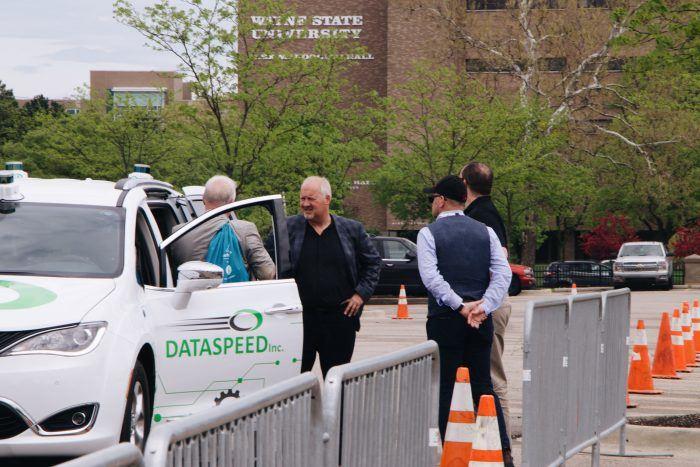
Для инженеров от инженеров
Организаторы говорят, что они сосредоточены на технической целостности конференции, убедившись, что посетители имеют точную картину того, что происходит на рынке. Другими словами, здесь нет торговых площадок. «Инженеры – инженерам» – это организаторский подход, который можно увидеть во всех аспектах конференции, от демонстраций автономных транспортных средств, до экспертной панели докладчиков.
«AutoSens объединяет инженерные умы таким образом, что это несравнимо с другими событиями в этом секторе», – сказал Стед. «Реальное чувство общности. Вы обнаружите, что участники, которые проводят исследования в нишевой технической области, будут очень открыты и объяснят что-либо тем, кто менее опытен».
Среди экспертов – представители BMW Group, Intel, Hailo, Lyft, NXP Semiconductors, Waymo, University of Surrey, Siemens, Renesas, Smart Eye, Университет Warwick, ABI Research, VSI Labs и Arbe Robotics. Руководители сессий имеют опыт в области робототехники, компьютерного зрения, автомобильной электроники, цифровой обработки изображений и функциональной безопасности.
«Разница между AutoSens и многими другими событиями по теме автономных автомобилей заключается в том, что посетители AutoSens являются настоящими инженерами, – сказал Стед. «Они знают из первых рук, какие технологии работают хорошо, каковы слабые места и каковы будущие возможности».
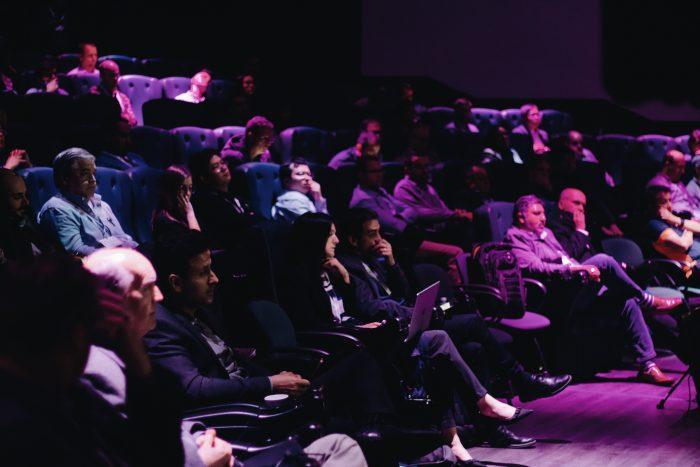
Участники во время одной из многочисленных технических презентаций, которые состоялись в мае в AutoSens Detroit.
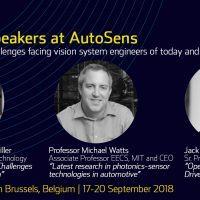
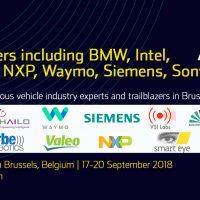
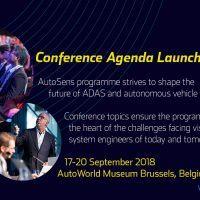
Билеты и местоположение
AutoSens Brussels 2018 пройдет в знаменитом городском AutoWorld Museum с 17 по 20 сентября. Сейчас доступны билеты, в том числе пакеты скидок для женщин инженеров. Полную повестку дня мероприятия и список спикеров можно найти здесь. Награды AutoSens, также проводимые в Брюсселе, назначены на вечер 19 сентября.
Более 400 инженеров, исследователей, технологов и других отраслевых экспертов посетили AutoSens в Детройте в мае. В подготовке к предстоящей конференции в Брюсселе, организаторы выражают благодарность за тот уровень поддержки, который они получили.
Тематика и темы для AutoSens Brussels
- Качество и стандартизация изображения.
- Требования к обработке изображений и сигналов.
- Человеческие факторы в конструкции датчиков и автономных транспортных средств.
- Регулирование / этические соображения для самодвижущихся транспортных средств.
- Как повысить производительность и безопасность автоматизированных транспортных средств.
- Функциональная безопасность и тестирование, включая реальный мир и виртуальную проверку.
- Контроль водителя и купе на пути к автономным транспортным средствам.
- Слияние датчиков, включая проблемы проверки и обсуждение различных комбинаций датчиков.
- Сенсорные технологии, включая системы мониторинга камеры, LIDAR, радар и визуализацию времени пролета.